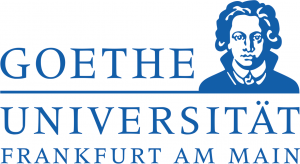Jobs

ERC funded Postdoc position to work on our BatProtect project
BatProtect is a 6-year funded ERC synergy grant project that will use bats as natural models of healthy aging and disease tolerance to elucidate the molecular mechanisms behind bats’ exceptional longevity and resistance to viral and age-related diseases. BATPROTECT brings together a team of global leaders in bat biology and ageing (Emma Teeling, Dublin), bat immunology and virology (Linfa Wang, Singapore), evolution and genomics (Michael Hiller, Frankfurt), and ageing model organisms (Bjoern Schumacher, Cologne) that will jointly investigate aging and immune responses in bats from the wild and captive colonies, discover genes with evolutionary importance for longevity and disease resistance, and functionally validate longevity and immune regulators in stem and differentiated cells of bats and model organisms, with the ultimate goal to uncover new directions to improve human healthspan and disease outcome.
The Project
Our goal is to uncover the genomic basis of exceptional healthspans and disease tolerance in bats, understand the evolution of these traits, and identify key molecular targets for functional validation. To this end, we are generating ~150 new reference-quality bat genomes and transcriptomic datasets, and will analyze these data using our established methods repertoire (TOGA and others). Work includes comparative genomic screens to identify key adaptations in coding and non-coding genes as well as differences in gene expression patterns across the bat phylogeny, associating genomic and transcriptomics changes with longevity and viral reservoir traits, identifying novel bat genes, and investigating the evolutionary history of endogenized viral elements.
The postdoc will work closely with other members of the BATPROTECT team, the Hiller lab, and other Bat1K collaborators. We also offer exchanges with the other BATPROTECT labs and yearly retreats with all project members.
Funding is available for 6 years.
Vacancy Ref. #12-24013
Initial application Deadline: Nov 15, 2024 (but we will consider applications until the position is filled)
ERC funded Bioinformatician position to work on our BatProtect project
We are also looking for a Bioinformatician to join our ERC BatProtect project.
The Bioinformatician will assemble reference-quality genomes of bat species, for which we are currently generating PacBio HiFi and HiC data. For a few focal species, we will also generate a complete T2T assembly. The Bioinformatician will also analyze transcriptomics data that we are sequencing in parallel for all target bat species, use this data and our homology-based methods (TOGA) to annotate the new genomes, generate whole genome alignments of bats and other mammals, and support the BATPROTECT project.
The Bioinformatician will work closely with other Bioinformaticians at TBG, other members of the BATPROTECT team, and the Hiller lab. We offer exchanges with the other BATPROTECT labs and yearly retreats with all project members.
Funding is available for 6 years.
Vacancy Ref. #12-24001-1
Initial application Deadline: Nov 22, 2024 (but we will consider applications until the position is filled)
MASTER OR BACHELOR PROJECTS
We are offering Master or Bachelor projects related to the computational aspects of our genomics research to students having programming experience (e.g. perl or python) and proficiency in linux. Interested students are encouraged to email Michael.
PostDoc Position: Comparative Genomics in Fruit Bats
We are looking for a Postdoc to investigate the genomic underpinnings of convergent dietary adaptations in bats.
The Project
While most bats feed on insects, several independent lineages adapted to fruit- or nectar-based diets that are rich in sugars. In contrast to humans, where a sugar rich diet is a major risk factor for metabolic diseases, these bats have metabolic and physiological adaptations to such highly-specialized diets. The postdoc will capitalize on more than 15 already-existing new bat genomes sequenced in the lab with HiFi and HiC, comprehensive comparative RNA-seq datasets and our powerful genomic methods repertoire (e.g. TOGA) to comprehensively discover the genomic basis of adaptations to sugar-rich diets in bats (see here for a similar example in hummingbirds).
The project aims at providing novel insights into fundamental questions concerning (i) the contribution of gene-sequence vs. gene-expression changes and (ii) the importance of convergent vs. lineage-specific molecular changes for phenotypic convergence.
Please apply !!
Vacancy Ref. #12-23005
Application deadline: October 8th 2023
More details


